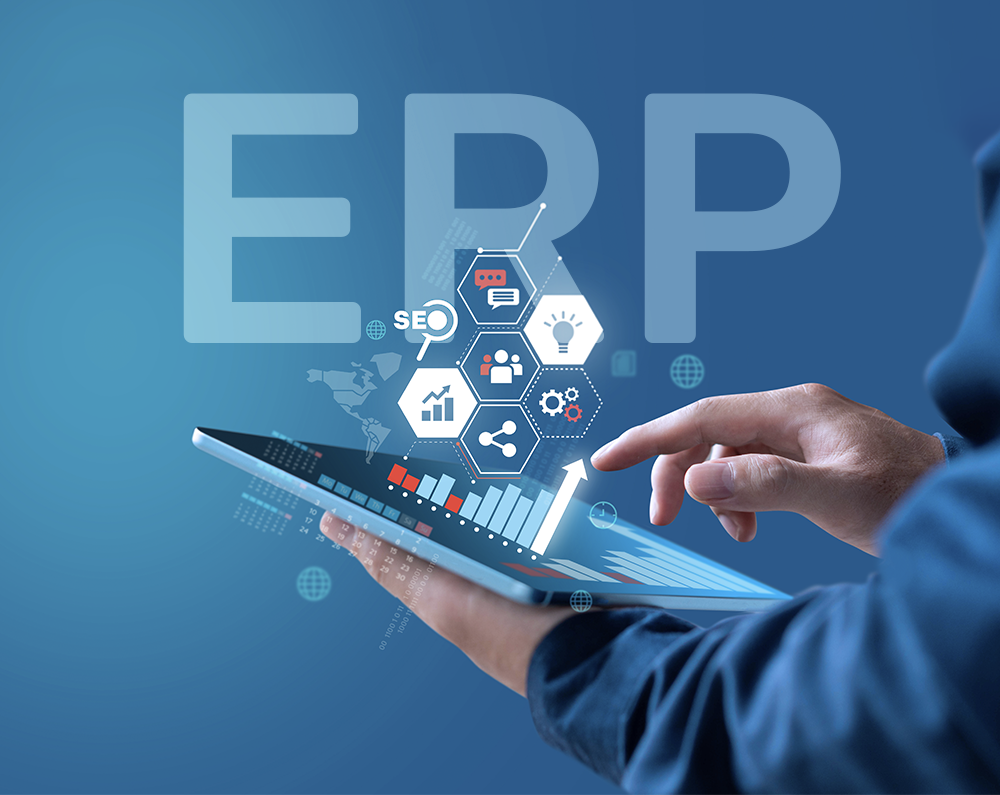
Enhancing Visibility and Control: Dynamics 365 Supply Chain Management Capabilities
How the Dynamics 365 Supply Chain Management solution ensures a more optimized supply chain.

In today’s dynamic and competitive manufacturing landscape, the synergy between Manufacturing Execution Systems (MES) and Enterprise Resource Planning (ERP) serves as a pivotal point for unlocking the transformative potential of Industry 4.0. From production coordinators to product managers and sales representatives to customers, this strategic alignment offers real-time insights, operational efficiency, and data-driven decision-making capabilities that can drive innovation, growth, and revenue for businesses.
In the following discussion, we are going to analyze how this integration brings forth a synergy of shop floor and business operations, thereby leading to improved efficiency, agility, and transparency in the manufacturing processes.
The question shouldn’t revolve around choosing between MES or ERP systems for a growing manufacturing enterprise. To become a transformative smart factory and effectively harness industry 4.0, technologies like Big Data, IoT, Analytics, Machine Learning, and Artificial Intelligence, it is imperative to implement a seamlessly integrated ERP and MES solution that facilitates real-time data exchange.
ERP systems manage and coordinate various administrative and logistical functions throughout the entire organization, whereas MES are intricately linked to the production line, focusing on ongoing production optimization and the collection of technical data related to the manufacturing process.
The integration of MES and ERP commences with a fundamental shift in an organization’s workflow, enabling the seamless adoption of disruptive technologies such as IoT, extensive data analytics, cloud computing, and more. Embracing these emerging technologies would require the incorporation of new data and process integration capabilities into the operational framework, facilitating the smoother flow of information across the entire organizational structure.

The integration also includes various facets, including structural data alignment, job scheduling, real-time production updates, machinery coordination, product availability synchronization, order commitment, labor allocation, and equipment efficiency enhancement.
Industry 4.0 investments are on the rise. A PWC survey reported that 33% of industrial manufacturers were planning to invest more than 10% of their revenue in industry 4.0 technologies.
This indicates growing recognition among industrial manufacturers of the value of integrating MES and ERP systems. By planning to allocate more than 10% of their revenue to Industry 4.0 technologies, these manufacturers are indicating a strong commitment to modernizing and optimizing their operations.
Let us explore how the synergy between MES and ERP can help manufacturers achieve Industry 4.0 capabilities.
MES and ERP systems are integrated to provide real-time data synchronization. This means that data related to production, inventory, and orders are updated instantly, allowing for accurate decision-making. IoT devices such as sensors on machinery and products contribute to this real-time data by collecting and transmitting data. For instance, sensors on a machine can send performance data to MES which is then shared with ERP for production planning.
Integration enhances visibility across the manufacturing process. Manufacturers can now consistently monitor, record, and track the entire supply chain, extending from the initial raw materials to the final product in real time. Furthermore, IoT devices such as RFID tags and GPS trackers offer in-depth data regarding the location along with the status of the goods as they progress through the supply chain. This data proves to be highly advantageous for activities such as predicting demand and monitoring the progression of items.
MES-ERP integration allows for efficient resource allocation. It optimizes the utilization of machines, labour, and materials based on real-time demand and capacity. IoT sensors and devices can provide data on machine performance, energy consumption, and even worker productivity, enabling better resource management decisions.
IoT sensors in manufacturing equipment can continuously monitor the quality of products and machine conditions. Whenever an anomaly is detected, MES-ERP integration can trigger quality control processes or maintenance activities. Predictive maintenance, made possible by IoT helps reduce downtime and prevents costly breakdowns by allowing manufacturers to schedule maintenance when it’s needed, not just based on a fixed calendar.
Integration of MES and ERP enables agile manufacturing processes. Manufacturers can quickly adapt to changing customer demands and market conditions, thanks to real-time data on inventory, production status, and supplier performance. IoT-driven data, such as customer feedback and market trends, can be fed into the ERP system, influencing production plans and strategies.
MES-ERP integration, combined with IoT enables more accurate demand forecasting. It uses historical data, real-time sales figures, and external factors like market trends and seasonality to predict future demand. IoT-connected inventory management systems help track inventory in real time. For example, RIFD tags on items can display their location and quantity, ensuring stockouts are minimized.
By having access to real-time data, organizations can better respond to customer demands and inquiries. MES and ERP integration facilitates improved order tracking, quicker response times, and more accurate delivery estimates, leading to higher customer satisfaction.
Korcomptenz leverages more than twenty years of experience to offer renowned proficiency in seamlessly integrating Manufacturing Execution Systems (MES) with your Enterprise Resource Planning (ERP) system. With our proven expertise in application development and support, integrations, and platformation, and a 24/7 global delivery model powered by an Agile implementation approach, we enable you to enhance product quality, reduce production lead times, and optimize operational costs.
MES and ERP integration acts as the foundation for leveraging Industry 4.0, creating a dynamic and interconnected manufacturing ecosystem. It streamlines processes, ensures data-driven decision-making, and enhances quality control, compliance, and customer service. Moreover, it makes supply chains more agile, machines smarter, and operations more sustainable. This integration is not only essential for staying competitive but also for embracing the future of manufacturing.

How the Dynamics 365 Supply Chain Management solution ensures a more optimized supply chain.

During a recession, the impact on the supply chain can be significant. There are some key considerations to understand the effect, overcome the challenges, and make your supply chain recession-proof.

Find out about the top ERP trends to get your organization ahead in 2023 and after. The trend is towards emerging technologies and concepts like composable ERP solutions.
| Cookie | Duration | Description |
|---|---|---|
| cookielawinfo-checkbox-analytics | 11 months | This cookie is set by GDPR Cookie Consent plugin. The cookie is used to store the user consent for the cookies in the category "Analytics". |
| cookielawinfo-checkbox-functional | 11 months | The cookie is set by GDPR cookie consent to record the user consent for the cookies in the category "Functional". |
| cookielawinfo-checkbox-necessary | 11 months | This cookie is set by GDPR Cookie Consent plugin. The cookies is used to store the user consent for the cookies in the category "Necessary". |
| cookielawinfo-checkbox-others | 11 months | This cookie is set by GDPR Cookie Consent plugin. The cookie is used to store the user consent for the cookies in the category "Other. |
| cookielawinfo-checkbox-performance | 11 months | This cookie is set by GDPR Cookie Consent plugin. The cookie is used to store the user consent for the cookies in the category "Performance". |
| viewed_cookie_policy | 11 months | The cookie is set by the GDPR Cookie Consent plugin and is used to store whether or not user has consented to the use of cookies. It does not store any personal data. |